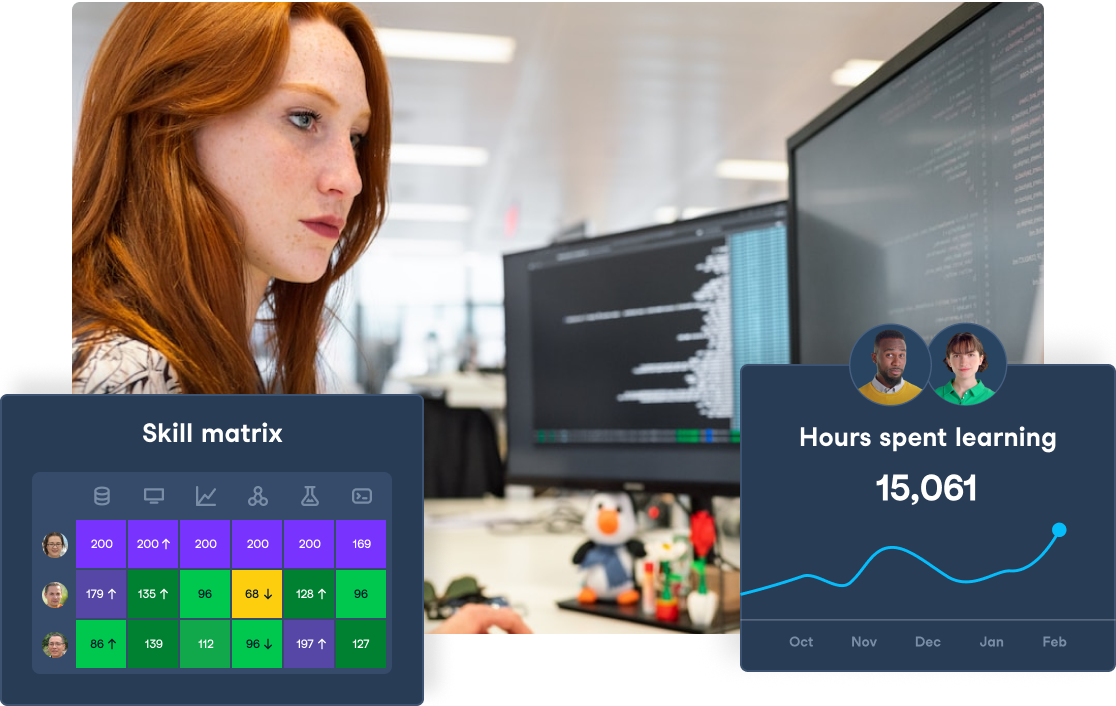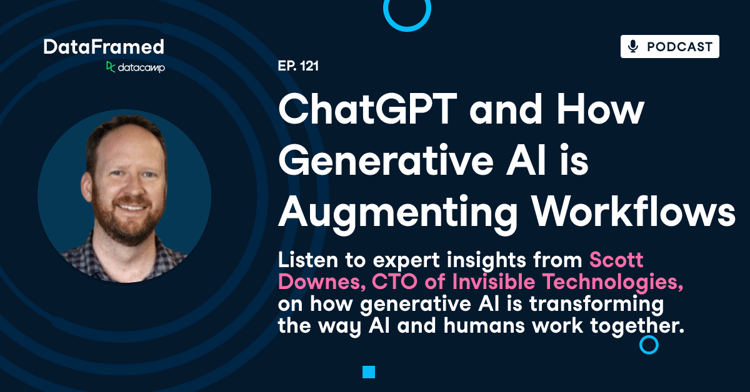Track
Disclaimer: While ChatGPT can be a valuable assistant for healthcare professionals, it should not be relied upon for medical diagnosis, treatment decisions, or direct patient care advice. The information provided by AI models may be incomplete, outdated, or incorrect. Always verify any output with authoritative medical sources, follow established clinical guidelines, and apply professional medical judgment. Usage of ChatGPT must comply with HIPAA and other relevant healthcare privacy regulations.
As healthcare technology advances, artificial intelligence tools like ChatGPT are becoming valuable allies for healthcare providers. By automating routine tasks, enhancing patient education, and supporting data analysis, ChatGPT offers tremendous potential to improve healthcare delivery while allowing medical professionals to focus on what matters most: patient care. While AI provides significant benefits, it serves as a supplement to, rather than a replacement for, healthcare expertise.
Before you begin working with ChatGPT in healthcare settings, several resources can help establish a good foundation. Our Learn ChatGPT course provides knowledge for beginners, while our ChatGPT Fundamentals skill track offers comprehensive training. For a broader context, I recommend our Understanding Artificial Intelligence course, which explores how AI technologies like ChatGPT can enhance organizations.
Discover more in our webinar, ChatGPT & Generative AI: Boon or Bane for Data Democratization?
How ChatGPT Can Enhance Healthcare Services
The impact of ChatGPT spans across multiple aspects of healthcare operations, from streamlining administrative workflows to improving patient engagement. Let's explore these key areas where ChatGPT is making a difference.
If you are interested in learning about DataCamp enterprise solutions, connect with our team. We have the tools to help you upskill your entire healthcare workforce with a full catalog that includes all the most popular programming languages as well as ChatGPT. We can find unique solutions for your healthcare business challenges that include custom tracks for your organization, along with bespoke reporting, so you can measure success, whether that means patient outcomes or business growth.
Elevate Your Team's Data Skills
Train your healthcare team with DataCamp for Business. Comprehensive data and AI training resources and detailed performance insights to support your goals.

Streamlining administrative work
Healthcare providers often spend countless hours on administrative tasks that could be automated. ChatGPT can help by:
- Drafting appointment confirmation emails and reminders
- Creating initial documentation templates
- Managing basic patient inquiries
- Organizing and summarizing patient feedback
- Generating preliminary reports
This automation allows healthcare professionals to redirect their time and energy toward direct patient care and complex medical decisions.
Enhancing patient education and communication
Clear communication lies at the heart of effective healthcare delivery. ChatGPT excels at transforming complex medical information into clear, accessible content for patients. Healthcare providers can use ChatGPT to create comprehensive educational materials, from detailed post-visit care instructions to medication guides. The tool helps bridge communication gaps by generating content in multiple languages and adapting medical terminology to meet various health literacy levels.
Supporting medical research and data analysis
Medical research demands precision and thoroughness, and ChatGPT serves as a valuable research assistant in this domain. When healthcare professionals need to stay current with medical literature, ChatGPT helps process vast amounts of information efficiently. It can generate initial literature review drafts, identify key themes across multiple studies, and highlight significant findings from research papers. For data analysis, it assists in spotting patterns and summarizing trends, though all findings require verification from qualified professionals.
Aiding in telemedicine and virtual health services
In the virtual healthcare space, ChatGPT can help by:
- Managing initial patient intake processes
- Providing preliminary screening questionnaires
- Supporting appointment scheduling and follow-up
- Drafting visit summaries for provider review
While ChatGPT should never diagnose or treat conditions, it can streamline many aspects of the telehealth experience for both providers and patients.
Real-World Applications: ChatGPT in Healthcare
Understanding how healthcare professionals apply ChatGPT in their daily work helps illustrate its practical value. So, let's look at how different healthcare roles are using ChatGPT.
ChatGPT for patient communication
Effective patient communication requires both medical accuracy and emotional intelligence. Medical professionals are using ChatGPT to draft initial responses to common patient concerns, create personalized follow-up care instructions, and develop explanations for complex procedures. For example, a surgeon might use ChatGPT to generate a basic explanation of an upcoming procedure, then customize it based on the patient's specific condition and concerns. This foundation allows healthcare providers to spend less time drafting routine communications and more time personalizing care.
ChatGPT for administrative support
The administrative burden in healthcare often includes:
- Scheduling and rescheduling appointments
- Processing routine documentation
- Managing insurance-related correspondence
- Coordinating between departments
- Creating and updating patient records
ChatGPT helps streamline these tasks by providing initial drafts and templates, though all outputs require human verification to ensure accuracy and completeness.
ChatGPT for medical content creation
Healthcare organizations are increasingly focused on patient education and community outreach. ChatGPT assists in developing types of content like:
- Educational blog posts about preventive care
- Social media updates on health awareness topics
- Newsletter articles about seasonal health concerns
- Informational materials about new services or treatments
- Patient success stories (with appropriate privacy measures)
These materials help establish healthcare providers as trusted sources of health information while educating their communities.
ChatGPT for data summarization and literature review
Staying current with research is essential. Healthcare professionals use ChatGPT to process new medical literature efficiently, maintaining their knowledge base without sacrificing patient care time. The tool helps synthesize information from multiple sources, identify key findings, and highlight relevant developments in specific medical fields. This capability is particularly valuable for specialists who need to track advances in their areas of expertise while managing full patient loads.
Best Practices When Using ChatGPT for Healthcare
Implementing ChatGPT in healthcare settings requires careful attention to quality control, privacy, and professional standards. Here's how healthcare organizations can maximize benefits while minimizing risks.
Review and verification of AI outputs
Quality control in healthcare cannot be compromised. Every piece of content generated by ChatGPT requires thorough review by qualified healthcare professionals before use. This verification process must include comprehensive checks for medical accuracy and alignment with current best practices. Healthcare providers should verify that all terminology matches facility standards, paying special attention to dosage information and medical instructions. Additionally, teams must ensure all content complies with healthcare regulations and matches appropriate patient literacy levels. This verification isn't just a final step—it's an integral part of the content creation process that helps maintain high standards of care.
Maintaining patient confidentiality
Patient privacy protection deserves unwavering attention when using AI tools. Healthcare providers must treat ChatGPT as a public platform and never input protected health information. Instead:
- Use anonymized examples
- Create generic templates
- Remove identifying details from scenarios
- Work with hypothetical cases
- Maintain HIPAA compliance at all times
Regular training for healthcare providers
Creating a culture of responsible AI use requires ongoing education and support. Healthcare organizations should develop comprehensive training programs that address both technical capabilities and ethical considerations. These programs should emphasize understanding AI's role as a supportive tool rather than a decision-maker, teaching staff to recognize appropriate use cases and potential pitfalls. Regular updates keep teams informed about new features and best practices, while practical workshops help staff develop skills in prompt engineering and content verification.
Healthcare professionals ready to expand their AI expertise have access to several specialized resources. The ChatGPT Prompt Engineering for Developers course teaches advanced techniques for creating effective prompts, complemented by practical insights from the Beginner's Guide to Prompt Engineering with ChatGPT webinar. For those interested in the ethical dimensions of AI in healthcare, the AI Ethics course and AI Ethics: An Introduction blog post provide essential guidance. Finally, the AI Fundamentals skill track rounds out this knowledge with comprehensive coverage of AI principles and applications.
ChatGPT Prompting Tips for Healthcare Professionals
Effective use of ChatGPT depends largely on how questions and requests are framed. Understanding proper prompting techniques helps healthcare professionals get more accurate and useful responses.
Role-based prompting for varied scenarios
Healthcare professionals can enhance ChatGPT's outputs by specifying the intended role and audience in their prompts. For example:
Generate patient discharge instructions for managing Type 2 diabetes, written at an 8th-grade reading level. Include sections on:
Daily blood sugar monitoring
Medication schedule
Diet recommendations
Exercise guidelines
Warning signs to watch for
Step-by-step prompting for complex tasks
Breaking down complex healthcare tasks into smaller components leads to better results. Consider this example approach to creating patient education materials:
-
First prompt:
Create an outline for a comprehensive guide on post-operative care after knee replacement surgery. -
Review and refine the outline.
-
Second prompt:
Expand on the pain management section, including both medication and non-medication strategies. -
Third prompt:
Add specific physical therapy exercises with clear, simple descriptions.
Iterative refinement of responses
Healthcare providers can improve ChatGPT's outputs through an iterative process of refinement. Start with a basic prompt to generate initial content, then systematically refine it through follow-up prompts that address specific aspects. This might include adjusting technical language for different audiences, incorporating cultural considerations, or adding practical examples. For instance, after generating basic wound care instructions, providers might refine the content to address specific patient populations or common complications.
Limitations and Ethical Considerations
Avoiding over-reliance on AI for medical guidance
Understanding the limitations of ChatGPT is essential for patient safety. The tool lacks the nuanced clinical judgment that comes from years of medical training and direct patient care experience. Healthcare providers must view ChatGPT as an administrative and educational aid rather than a clinical decision-making tool. Its role is to support and streamline processes, never to replace professional medical judgment in patient care decisions. Each suggestion or piece of content generated by ChatGPT should be evaluated within the broader context of individual patient needs, medical history, and current best practices.
Awareness of AI bias and limitations
AI systems, including ChatGPT, can reflect biases present in their training data, which poses particular challenges in healthcare settings. These biases might manifest in various ways, from overrepresenting certain demographic groups to underestimating the significance of cultural factors in health outcomes. Healthcare providers must actively work to identify and correct these biases when using AI-generated content. This involves careful review of language choices, cultural sensitivity, and representation in medical examples. Special attention should be paid when addressing health conditions that affect diverse populations differently or when creating materials for underserved communities.
Ensuring informed consent and transparency
Healthcare organizations have an ethical obligation to maintain transparency about their use of AI tools. This means:
- Informing patients when AI assists in creating their health materials
- Explaining how AI tools are used in administrative processes
- Clarifying the role of human oversight in AI-generated content
- Providing options for patients who prefer traditional communication methods
- Maintaining clear documentation of AI use in healthcare delivery
AI Ethics
Building a Framework for Responsible AI Use in Healthcare
Developing guidelines for ChatGPT in healthcare
Creating a sustainable framework for AI integration in healthcare requires thoughtful planning and clear protocols. Healthcare organizations should establish comprehensive guidelines that define appropriate uses of ChatGPT while setting clear boundaries for its limitations. These guidelines should address content creation workflows, verification procedures, and documentation requirements. They must also outline specific scenarios where ChatGPT use is prohibited, such as direct patient diagnosis or treatment planning.
Training and competency standards for healthcare staff
Professional development in AI tools should become a part of healthcare training programs. This education goes beyond basic tool operation. Understanding AI’s role in healthcare should include:
- Recognizing appropriate use cases
- Learning verification procedures
- Developing prompt engineering skills
- Maintaining patient privacy
- Applying ethical considerations
DataCamp is here to help. We have a team dedicated to enterprise solutions. You are sure to be impressed with our experience creating custom educational content for employees at all levels, with a focus on the latest tools available. The benefits that come with upskilling an entire workforce at once can't be overstated, so fill out the following form and create a demo request today.
Elevate Your Organization's AI Skills
Transform your business by empowering your teams with advanced AI skills through DataCamp for Business. Achieve better insights and efficiency.

Success in AI integration depends on staff confidence and competence. Regular assessments help ensure that all team members maintain the necessary skills for safe and effective AI use. This includes understanding when to use ChatGPT, when to avoid it, and how to verify its outputs effectively.
Monitoring and quality assurance
Implementing AI tools in healthcare requires ongoing monitoring and evaluation. Organizations should establish clear metrics to assess the impact of ChatGPT on:
- Patient satisfaction levels
- Communication effectiveness
- Error reduction rates
- Time savings in administrative tasks
- Staff satisfaction and efficiency
Regular audits help identify areas for improvement while ensuring that AI use aligns with organizational goals and healthcare standards.
Looking Ahead: ChatGPT's Role in the Future of Healthcare
The integration of ChatGPT into healthcare settings marks just the beginning of AI's transformative potential in medicine. As the technology continues to mature, we can expect to see more sophisticated applications that further enhance healthcare delivery while maintaining the essential human element of medical care.
Enhanced integration with healthcare systems
The future of ChatGPT in healthcare lies in deeper integration with existing medical systems and workflows. Medical professionals can anticipate more seamless connections between AI assistance and electronic health record systems, leading to smarter automation of routine documentation and improved data organization. This integration will help reduce administrative burden while maintaining high standards of accuracy and compliance. Healthcare providers will be able to focus more on patient care as AI handles increasingly complex administrative tasks with greater precision and reliability.
Personalized health communication
Advances in AI technology will enable more nuanced and personalized health communications. ChatGPT's capability to process and adapt medical information will become more sophisticated, allowing for highly customized patient education materials that consider individual health literacy levels, cultural backgrounds, and specific medical conditions. This evolution will support better patient engagement and understanding, leading to improved treatment adherence and health outcomes.
Global health impact
As language capabilities expand and cultural understanding deepens, ChatGPT will play an increasingly important role in global health initiatives. The technology will help bridge communication gaps in multicultural healthcare settings, support medical professionals in underserved regions, and facilitate the sharing of medical knowledge across borders. This global reach could significantly impact public health education and healthcare accessibility worldwide.
Collaborative innovation
The future of healthcare AI lies not in replacing human expertise but in fostering new forms of collaboration between medical professionals and artificial intelligence. Healthcare providers will develop more sophisticated ways to leverage ChatGPT's capabilities, creating innovative approaches to patient care, medical education, and healthcare administration. This collaboration will lead to new best practices and standards for AI use in healthcare settings.
Final Thoughts
While ChatGPT represents a powerful tool for healthcare improvement, its true value will always depend on thoughtful implementation by healthcare professionals. The technology's evolution must continue to prioritize patient safety, data privacy, and ethical considerations. As we look to the future, the focus should remain on using AI to enhance, rather than replace, the human elements that make healthcare effective and compassionate.
The success of ChatGPT in healthcare will ultimately be measured not by the sophistication of its technology, but by its ability to help healthcare providers deliver better, more efficient, and more accessible care to their patients. As we move forward, maintaining this patient-centered perspective will be essential in guiding the development and implementation of AI tools in healthcare settings.
Master AI for Business
Learn how to extract business value from AI and LLMs.
As an adept professional in Data Science, Machine Learning, and Generative AI, Vinod dedicates himself to sharing knowledge and empowering aspiring data scientists to succeed in this dynamic field.
FAQs
Can ChatGPT help with medical diagnosis?
ChatGPT should not be used for medical diagnosis as it cannot examine patients or access real-time medical data. It should only be used as a reference tool to learn about conditions and symptoms in general terms.
How can healthcare administrators use ChatGPT effectively?
Healthcare administrators can use ChatGPT for drafting general communications, summarizing medical literature, and streamlining documentation processes. It's particularly useful for non-clinical administrative tasks that don't involve patient data.
Is ChatGPT's medical information accurate and up-to-date?
ChatGPT's medical information may not always be current as it's trained on historical data with a specific cutoff date. Healthcare professionals should always verify information through authoritative medical sources.
Can patients use ChatGPT for health advice?
While patients can use ChatGPT to learn more about health topics, they should never rely on it for medical advice or treatment decisions. Any health concerns should always be discussed with qualified healthcare providers.
How can medical students use ChatGPT in their studies?
Medical students can use ChatGPT to create study materials, practice case scenarios, and understand complex medical concepts through simplified explanations. However, they should always verify information through standard medical textbooks and current clinical guidelines.
How does ChatGPT maintain patient privacy and HIPAA compliance?
ChatGPT should be treated as a public platform and should never process protected health information. Healthcare providers must work with anonymized examples, generic templates, and hypothetical cases to maintain HIPAA compliance.

